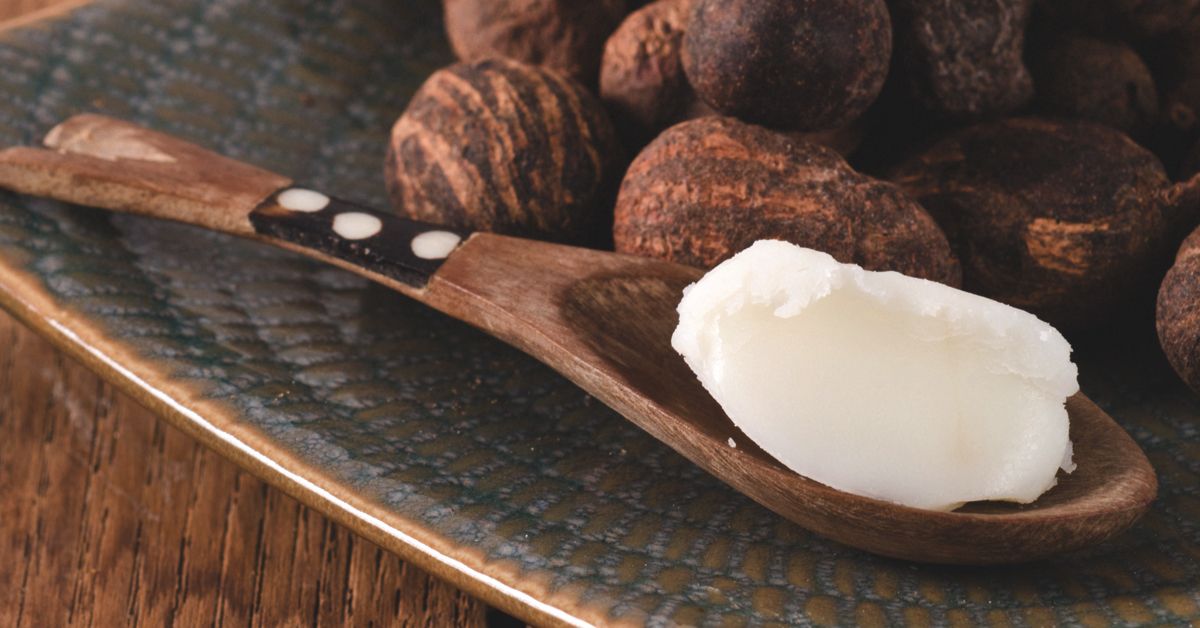
Shea butter for eczema: treatment & benefits
- Select a language for the TTS:
- UK English Female
- UK English Male
- US English Female
- US English Male
- Australian Female
- Australian Male
- Language selected: (auto detect) - EN
Play all audios:

Research suggests that shea butter may have anti-inflammatory and anti-oxidative properties that could help treat eczema symptoms. Shea butter is made up of triglyceride fats taken from the
nuts of the African shea tree. It’s been used in the cosmetic industry for years because of its antioxidant, anti-aging, and anti-inflammatory characteristics. Keep reading to learn more
about the possible benefits, risks, and applications of shea butter for eczema. How does shea butter help eczema? Eczema, also known as atopic dermatitis, is a chronic inflammatory
condition. It may cause itchy, scaly skin patches or blisters that could sometimes be painful. Shea butter is a fatty substance composed of several anti-inflammatory and anti-oxidative
components, such as: * triterpenes * tocopherol * phenols * sterols Shea butter is a type of natural emollient. It works by creating a protective barrier over your skin to help retain
moisture. This helps reduce transepidermal water loss, which is when water leaves your skin. A 2015 study of 4 weeks in 34 people with eczema looked at the effects of using a moisturizing
cream or cleanser containing shea butter extract. Researchers found that 74% of participants benefitted from the moisturizing cream, while 76% benefitted from the cleanser. However, a 2020
review found that some studies found no benefits of using shea butter for eczema treatment. As such, more research is required to fully support the benefits of using shea butter for eczema.
How to treat eczema with shea butter To help treat eczema, use shea butter as you would any other moisturizer. Take a short bath or shower with warm water twice a day. The National Eczema
Association recommends not using hot water or scrubbing, as these may worsen your symptoms. After, gently pat yourself dry with a soft, absorbent towel. Then, apply shea butter to the
affected skin within 3 minutes of drying off. It’s important not to use an emollient like shea butter on eczema that is open or oozing. This may increase your risk of infection, which could
lead to complications. Speak with a healthcare professional like a dermatologist before using shea butter to treat your symptoms. They could provide a proper diagnosis and may suggest a
better moisturizer as part of your treatment plan. What are the benefits of using shea butter for eczema? The National Eczema Association lists shea butter as an ingredient in moisturizers
that could help eczema. Some of its properties that might make it useful as a moisturizer include: * melting at body temperature * acting as a refatting agent by retaining key fats in your
skin * absorbing rapidly into the skin Shea butter contains several anti-inflammatory and anti-oxidative compounds. In a 2009 study, a participant with a moderate case of eczema applied
petroleum jelly to one arm and shea butter to the other, twice daily. At the beginning of the study, the severity of the person’s eczema was rated as a 3, with 5 being a very severe case and
0 being clear. At the end, the arm using petroleum jelly had its rating downgraded to a 2, while the arm using shea butter was downgraded to a 1. The arm using shea butter was also notably
smoother. When applied topically, the fatty nature of shea butter can help: * increase moisture retention * provide a protective layer for your skin * prevent water loss * penetrate to
enrich the deeper layers of skin Shea butter may also be cheaper and easier to find than other remedies. What are the risks of using shea butter for eczema? Allergic reactions or skin
irritation from shea butter are extremely rare. However, it’s important to do a skin patch test before trying it to make sure you’re not allergic. This involves applying a small sample to an
area of skin that’s not affected by eczema, and then seeing if symptoms develop. Stop using shea butter if you experience worsening eczema symptoms, such as increased inflammation or
irritation. Frequently asked questions DOES SHEA BUTTER HELP WITH ECZEMA? Research suggests that shea butter may be an effective natural remedy to help treat eczema. IS COCONUT OIL OR SHEA
BUTTER BETTER FOR ECZEMA? Coconut oil and shea butter can both help treat eczema. Studies have shown that coconut oil may help moisturize the skin and provide symptom relief. That said, few
studies compare the effects of shea butter with coconut oil. WHICH BUTTER IS GOOD FOR ECZEMA? Shea butter may help treat eczema symptoms by creating a skin barrier that prevents
transepidermal water loss. WHEN NOT TO USE SHEA BUTTER? You shouldn’t use shea butter if you’re allergic to it or if it’s making your symptoms worse. It’s also best to avoid applying shea
butter to infants and children due to their sensitive skin. Takeaway Shea butter is a fatty substance that may help in the treatment of eczema. It’s available as an emollient or as an
ingredient in moisturizing creams. Before trying any new at-home remedy, speak with a healthcare professional. They can provide more specific guidance and recommendations for your current
health situation.
